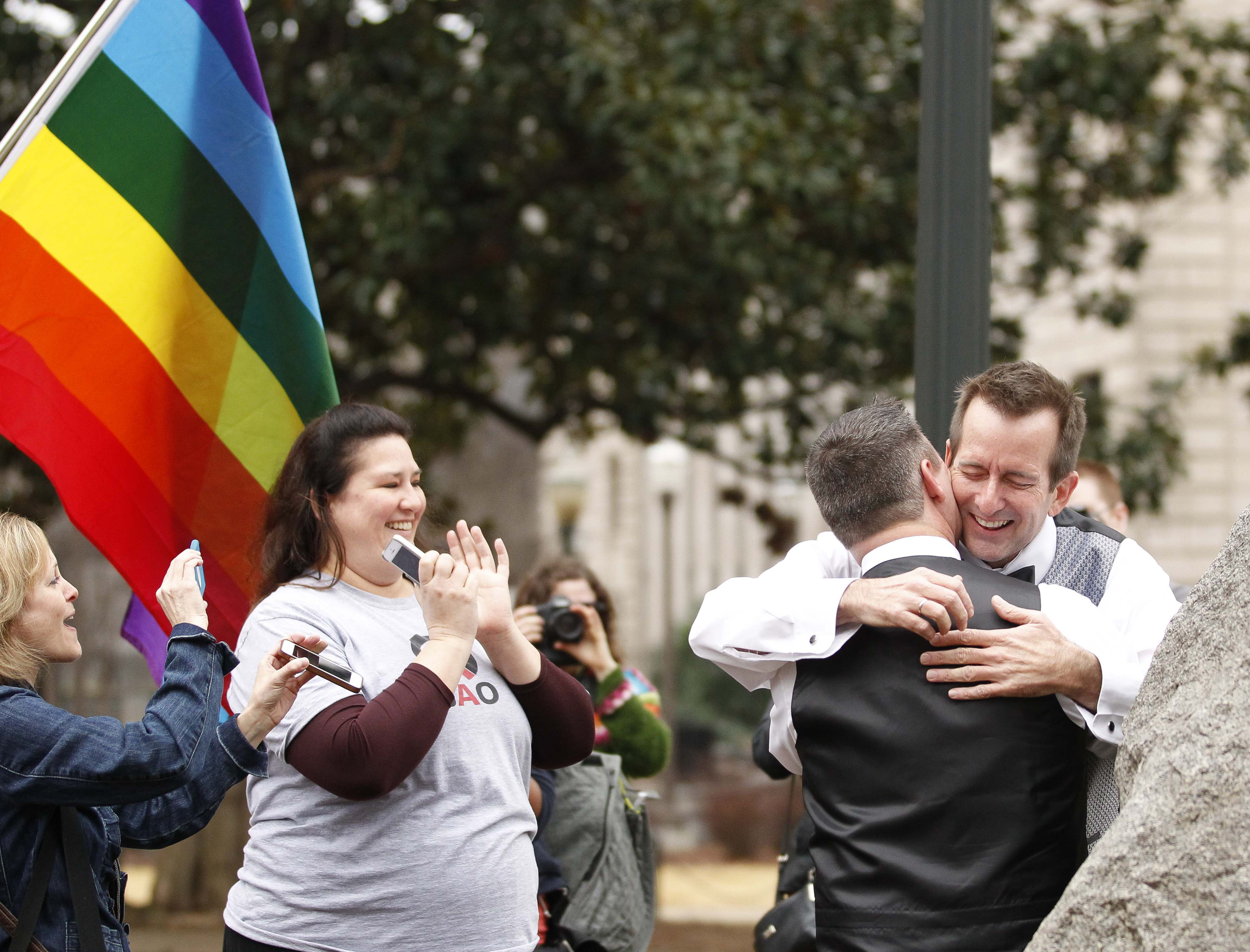The grand futility of the gay marriage standoff in Alabama
The defiance of Roy Moore is destined to become a historical footnote


A free daily email with the biggest news stories of the day – and the best features from TheWeek.com
You are now subscribed
Your newsletter sign-up was successful
Alabama Supreme Court Chief Justice Roy Moore's public resistance to a federal court order holding the state's ban on same-sex marriage unconstitutional inescapably evokes another lawless Alabama public official. In 1963, George Wallace stood at the door to an auditorium at the University of Alabama, blocking the registration of two African-American students in defiance of a federal court order, all while denouncing attempts to enforce Brown v. Board of Education as a "frightful example of the oppression of the rights, privileges, and sovereignty of this state by officers of the federal government."
In addition to their fondness for subverting the rule of law in order to uphold invidious discrimination, however, Moore and Wallace have something else in common: they were operating from a position of weakness, not strength. What is less remembered about Wallace's schoolhouse stand is its immediate futility: the students were registered anyway. Moore's attempt to maintain marriage discrimination today, marriage discrimination tomorrow, and marriage discrimination forever, despite some initial pockets of resistance, is likely to meet a similarly rapid demise.
On Monday, the U.S. Supreme Court refused to stay an opinion by District Court Judge Callie Granade holding Alabama's ban on same-sex marriage unconstitutional, allowing it to go into effect. Moore had preemptively ordered the state's probate judges to refuse to issue marriage licenses to same-sex couples. Refusing to play the Wallace role, however, Alabama Gov. Robert Bentley (R) announced, "I will not take any action against probate judges."
The Week
Escape your echo chamber. Get the facts behind the news, plus analysis from multiple perspectives.

Sign up for The Week's Free Newsletters
From our morning news briefing to a weekly Good News Newsletter, get the best of The Week delivered directly to your inbox.
From our morning news briefing to a weekly Good News Newsletter, get the best of The Week delivered directly to your inbox.
A majority of the state's probate judges, whether out of personal conviction or fear of Moore's wrath, did initially refuse to comply with the District Court ruling. The raw numbers — 52 out of 67 counties — are somewhat misleading, however, as most of the state's major population centers (including Birmingham and Montgomery) complied immediately. By Tuesday, 12 more counties announced that they would comply with the federal courts. Evidently, this trend is likely to continue.
And even if a few counties hold out, the effect on the availability of same-sex marriage rights for Alabamans will be modest. After all, same-sex couples can obtain a marriage license by traveling to another jurisdiction within the state. I don't mean to defend the behavior of recalcitrant probate judges or to trivialize the burdens imposed on some citizens: resistance by judges imposes an unjustified tax on Alabamans who can't obtain marriage licenses within their county. But the vast majority of same-sex couples in the state will be able to obtain marriage licenses with minimal difficulty.
Unlike the southern resistance to Brown v. Board, which succeeded in thwarting desegregation outside the border states for a decade, local resistance to judicial opinions requiring same-sex marriage will be an ineffectual whimper. The only way states like Alabama will be able to continue to deny the fundamental rights of their gay and lesbian citizens is if the Supreme Court reverses the lower court opinions finding a right to same-sex marriage guaranteed by the Fourteenth Amendment.
At least one prominent legal observer is confident that this will not happen, however. In his dissent to the Supreme Court's refusal to stay Judge Granade's decision, Justice Clarence Thomas, joined only by Justice Antonin Scalia, argued that the court's action "may well be seen as a signal of the court's intended resolution of that question." In previous dissents, Scalia has similarly insinuated that the court would soon declare a constitutional right to same-sex marriage.
A free daily email with the biggest news stories of the day – and the best features from TheWeek.com
On this point, Justices Thomas and Scalia are almost certainly correct. The court's refusal to stay the district court opinion is merely one more piece of evidence for a case that was already overwhelming. It's not certain that the Supreme Court will hold all state bans on same-sex marriage unconstitutional, but it's very likely. If so, the resistance of officials like Moore will be a minor historical footnote — reactionaries inevitably unwilling to face the fact that the world has changed.
Scott Lemieux is a professor of political science at the College of Saint Rose in Albany, N.Y., with a focus on the Supreme Court and constitutional law. He is a frequent contributor to the American Prospect and blogs for Lawyers, Guns and Money.
-
 Political cartoons for February 16
Political cartoons for February 16Cartoons Monday’s political cartoons include President's Day, a valentine from the Epstein files, and more
-
 Regent Hong Kong: a tranquil haven with a prime waterfront spot
Regent Hong Kong: a tranquil haven with a prime waterfront spotThe Week Recommends The trendy hotel recently underwent an extensive two-year revamp
-
 The problem with diagnosing profound autism
The problem with diagnosing profound autismThe Explainer Experts are reconsidering the idea of autism as a spectrum, which could impact diagnoses and policy making for the condition
